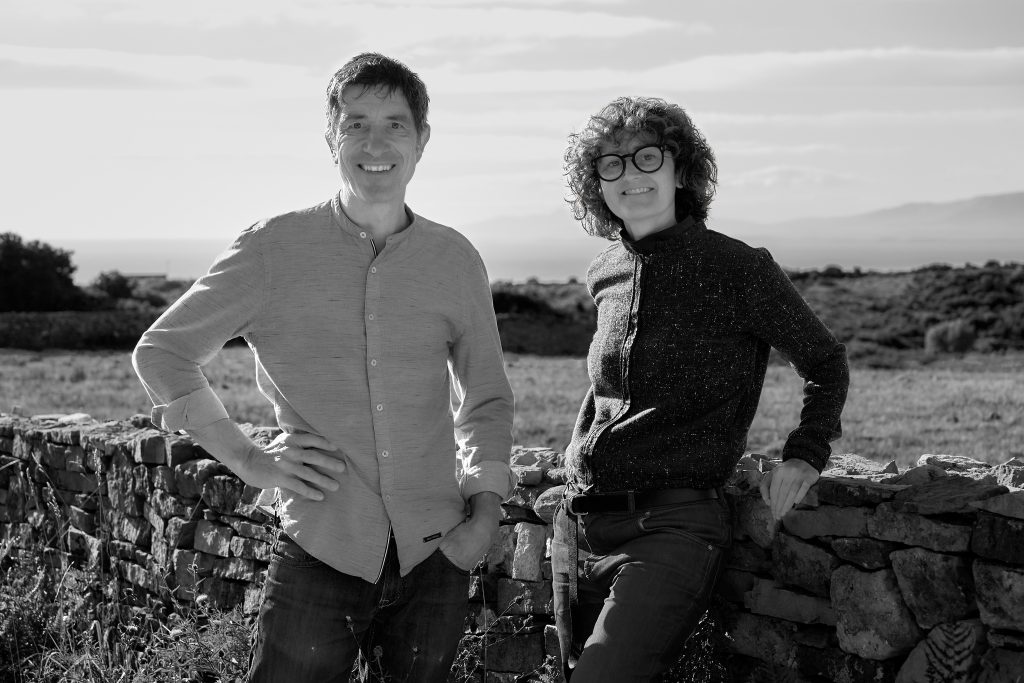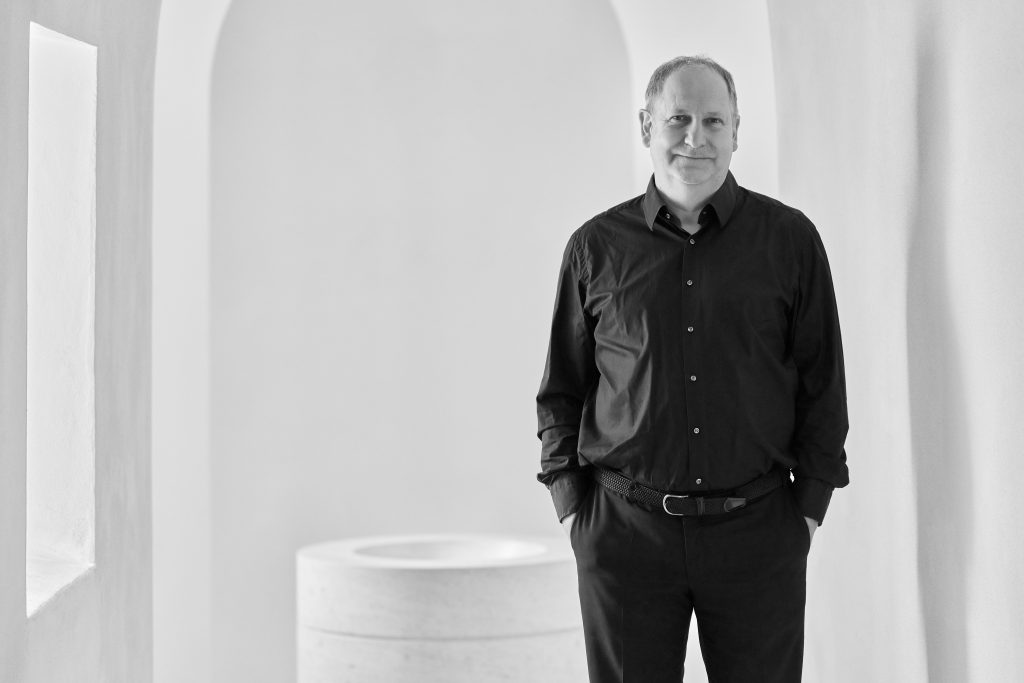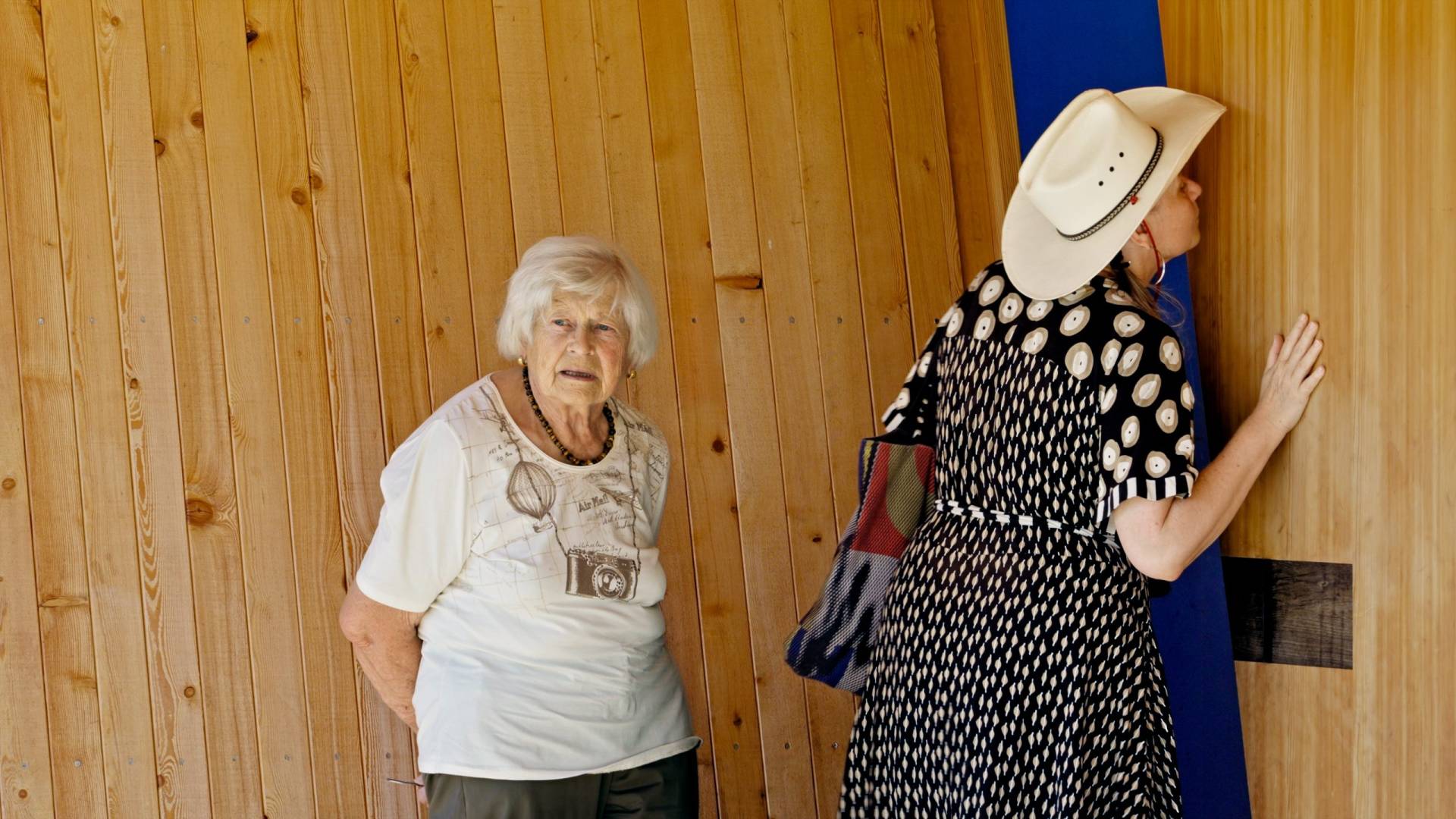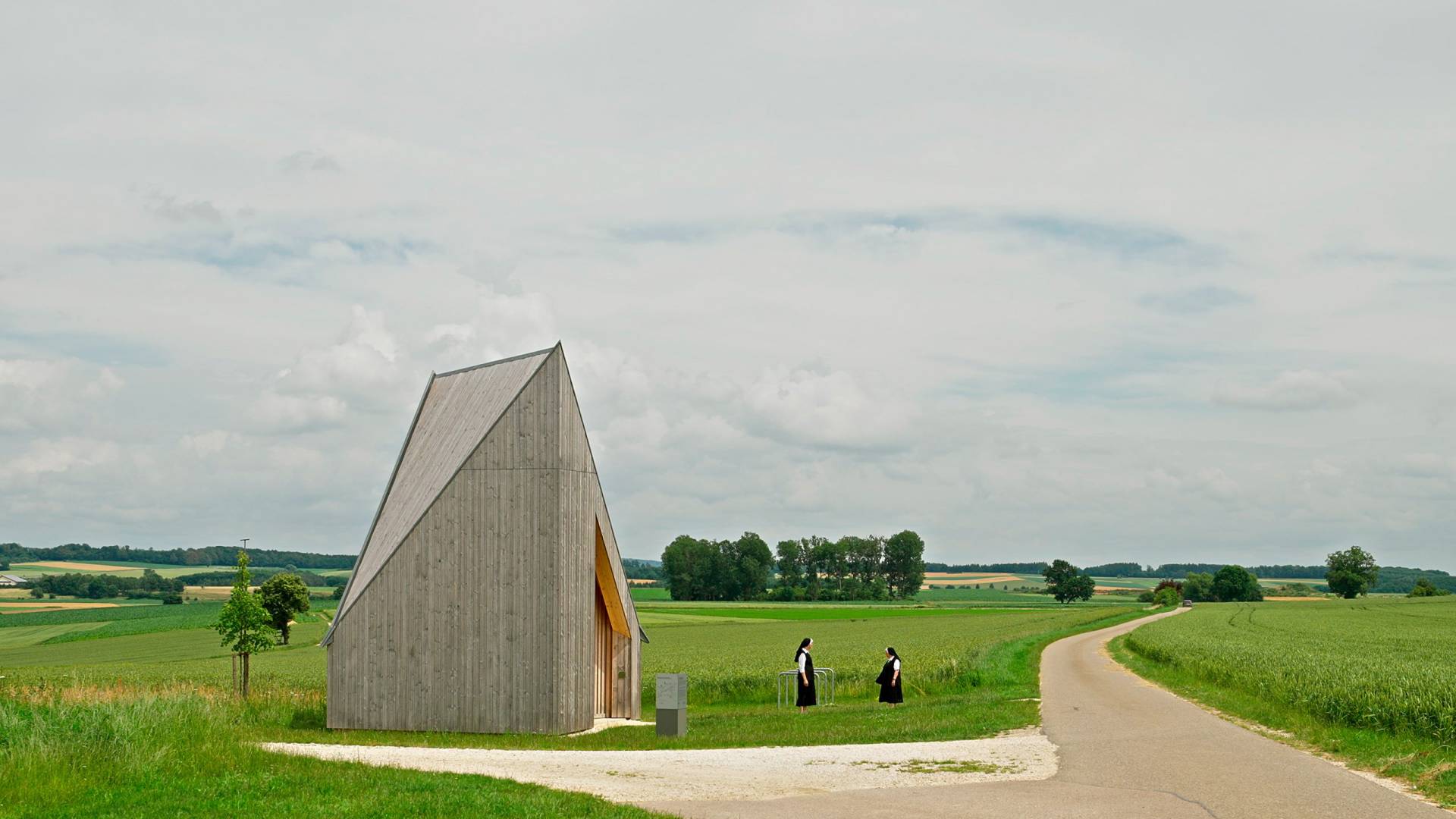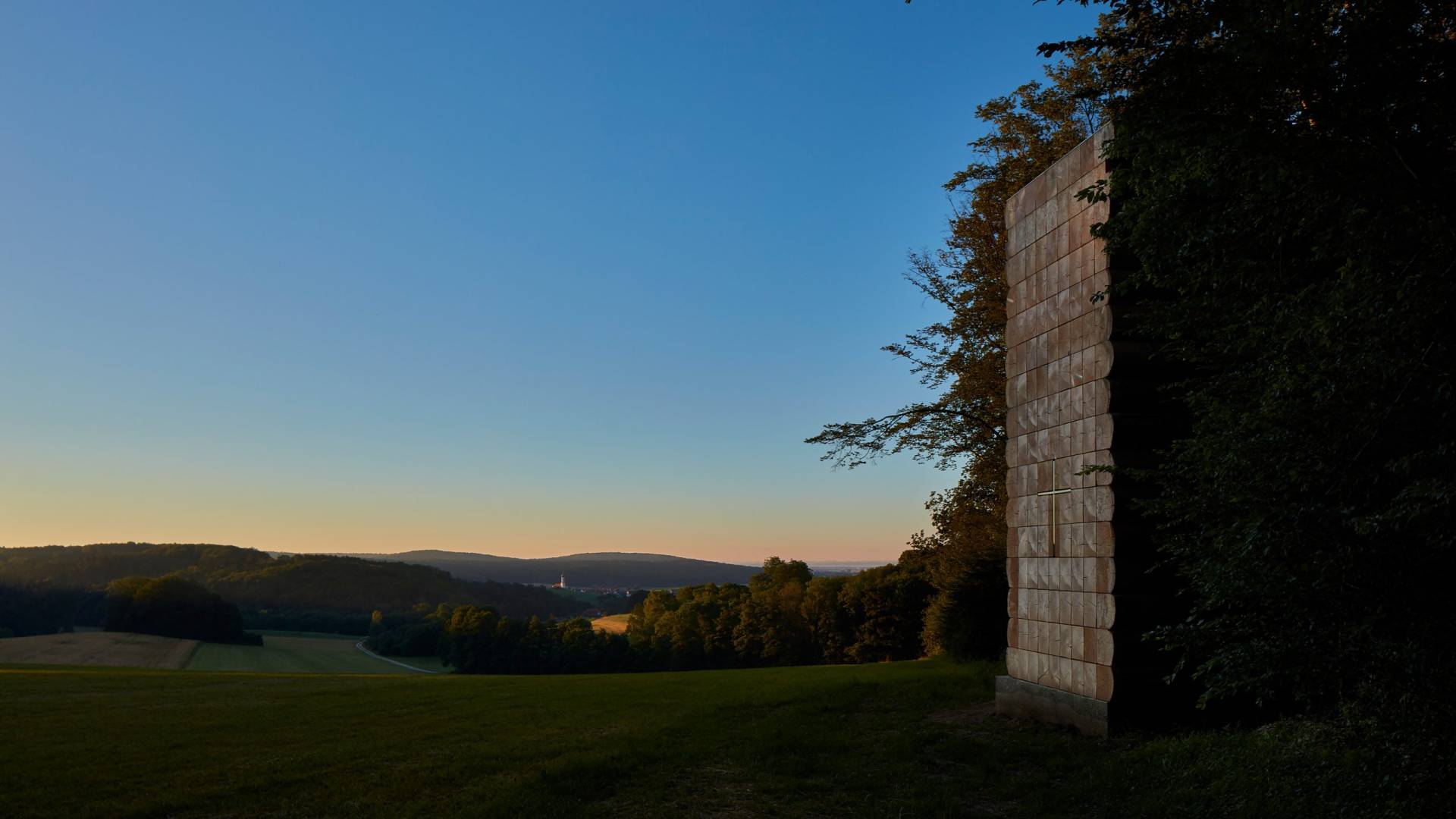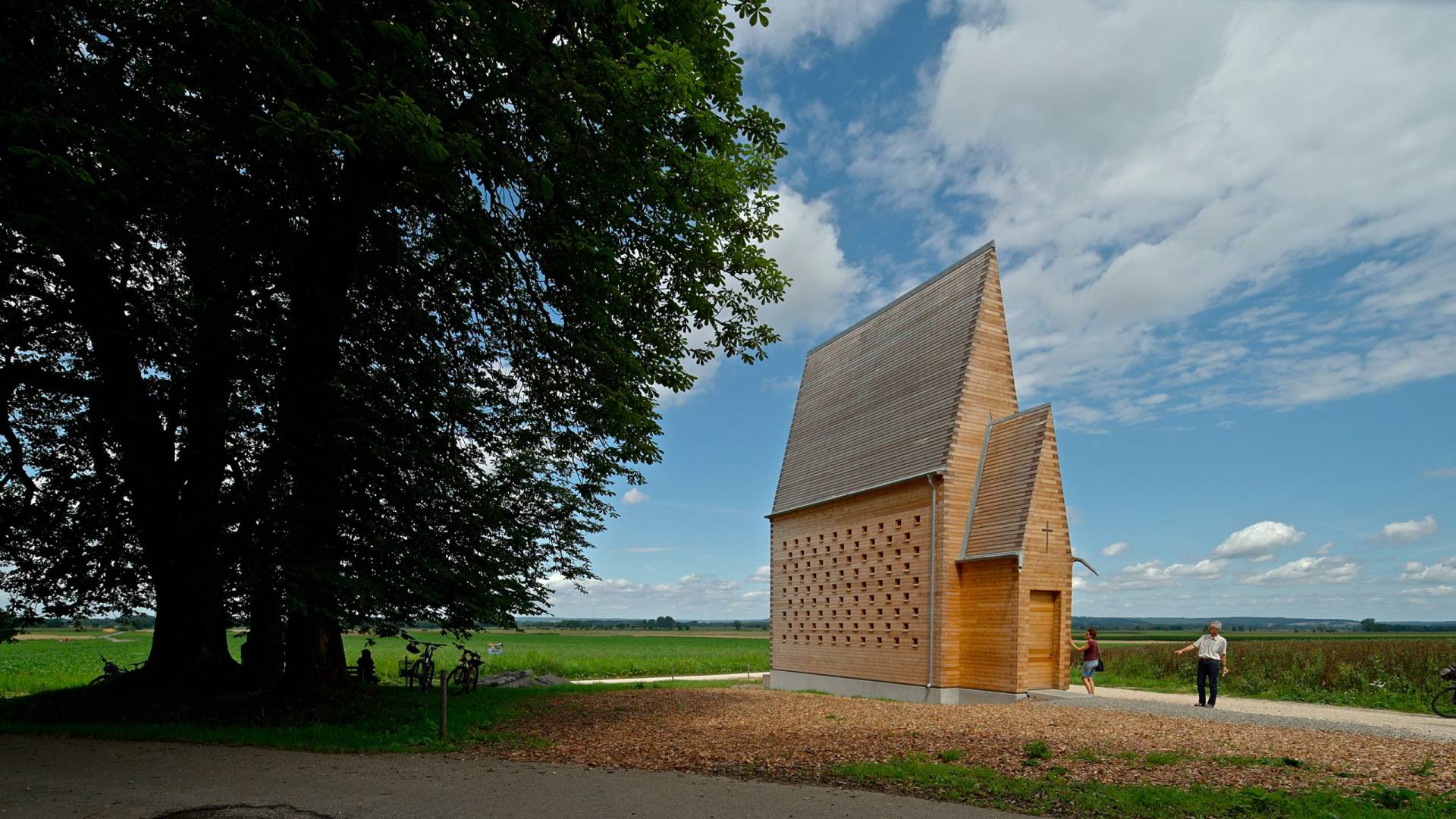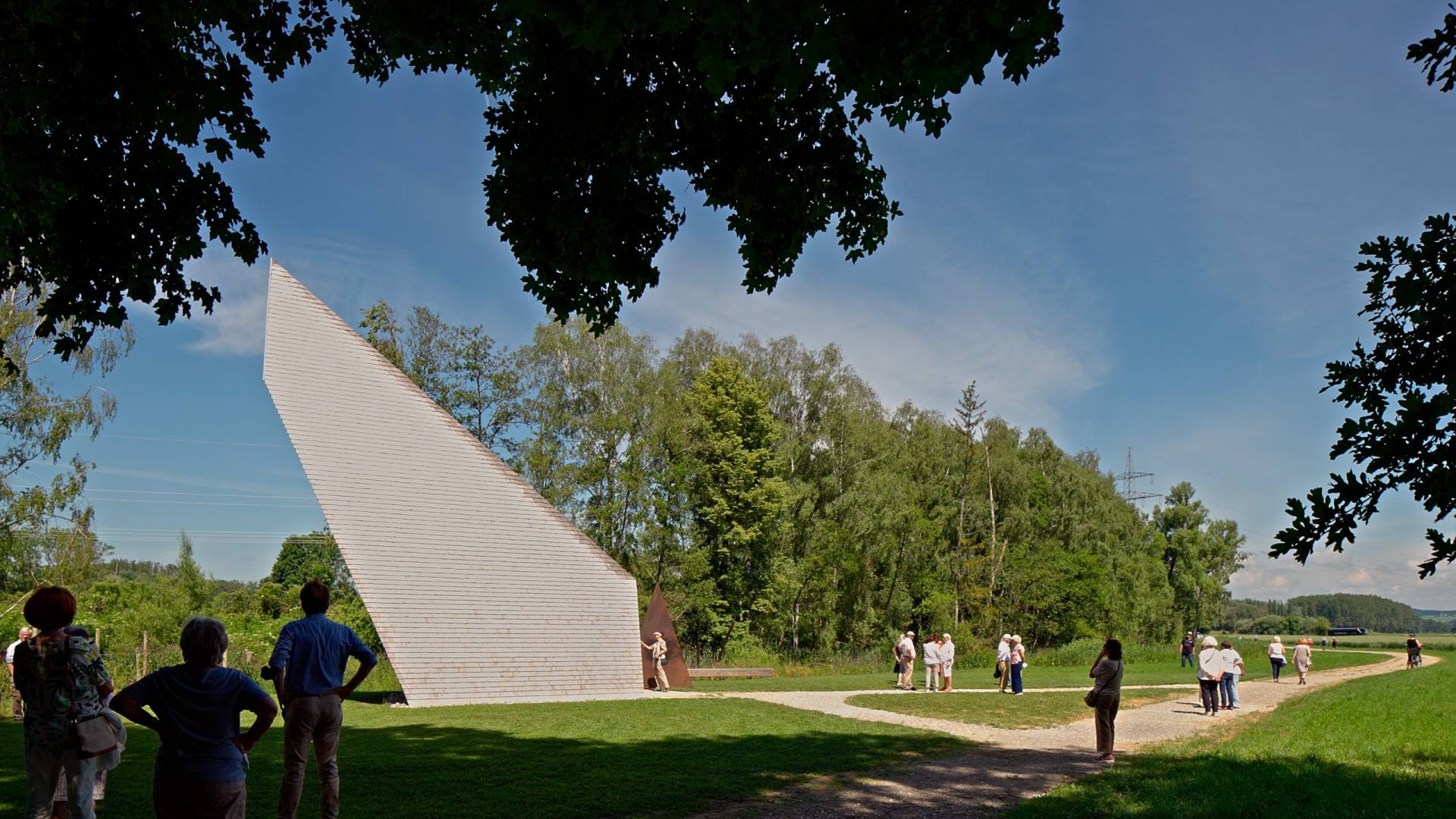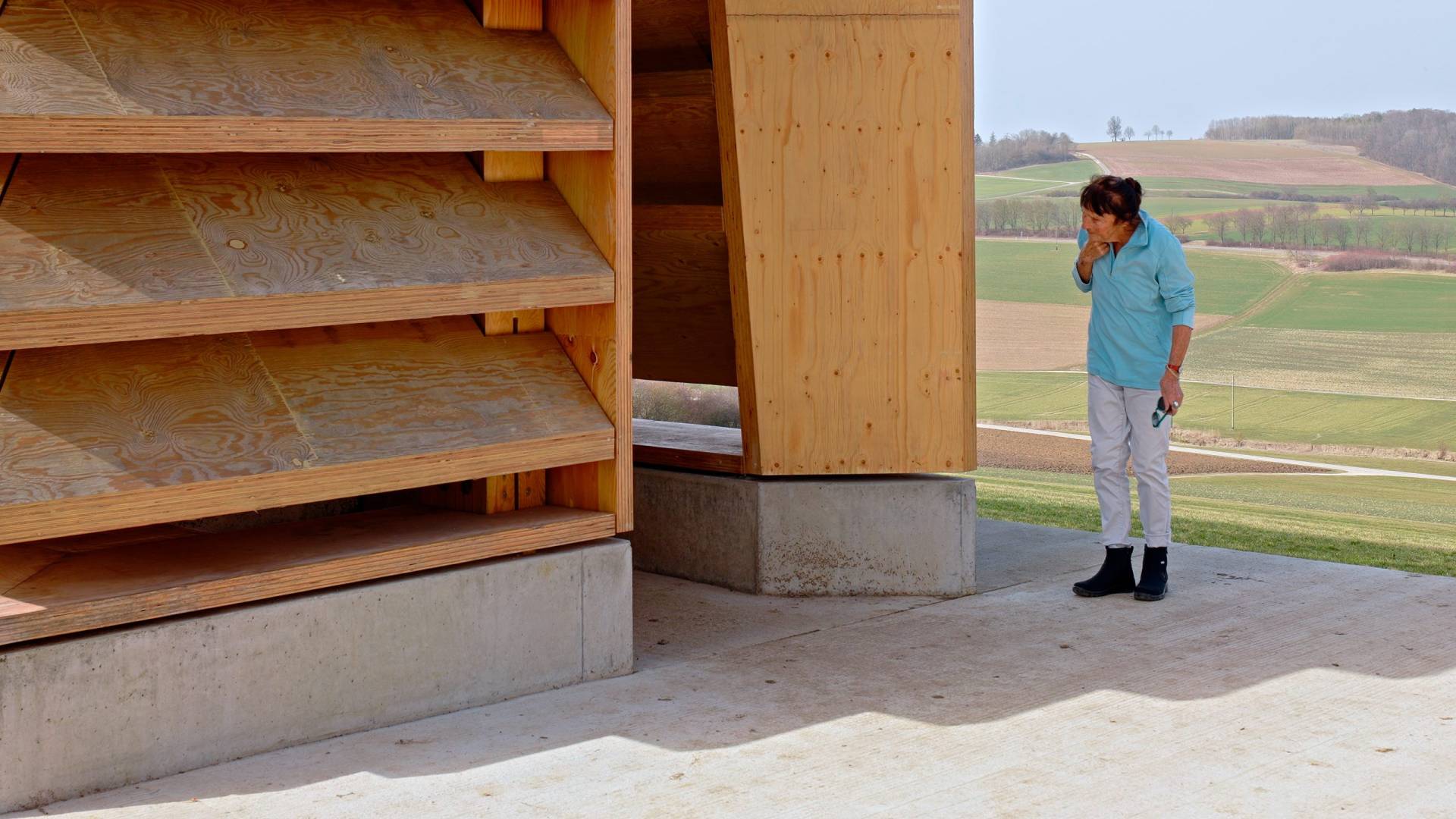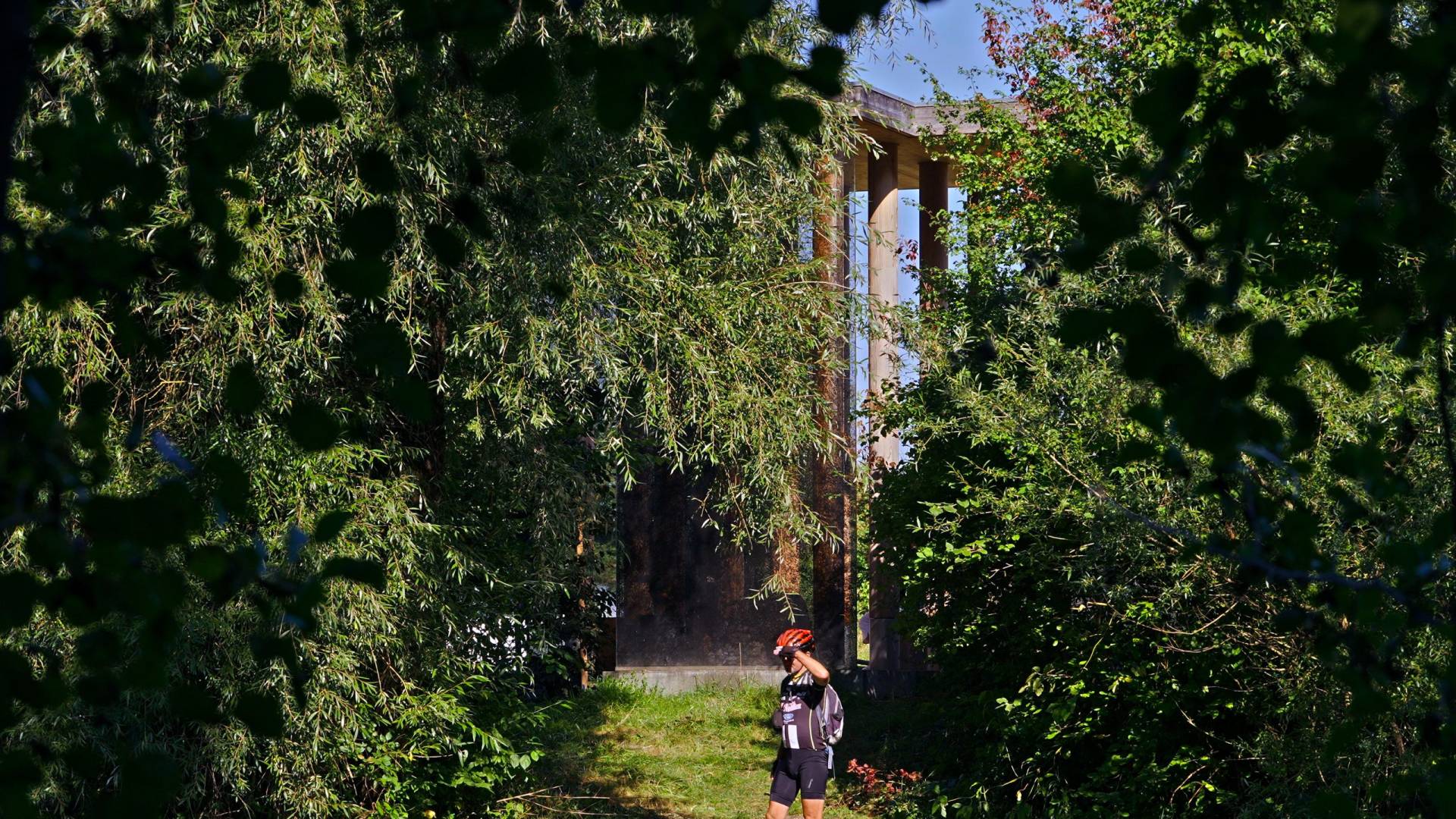A film about how sacred architecture embodies the human urge to give meaning and understand existence itself, or simply anything.
Long takes, combined with music, draw you into a surreal trance.

Screenings
Munich Theatiner Filmkunst, Fri, 21.06. 6pm. Sun 20.06. 11am. Post show discussion with directors, Orla Connolly & Jens Weber, composer Wolfram Oettl
Berlin Klick Kino, Thur 20.06. 7:30 pm Tickets at the box office
BABYLON Berlin , Thur 22.02., 7:30 pm. Post show discussion with directors, Orla Connolly & Jens Weber, composer Wolfram Oettl and architect Volker Staab.
Regensburg Kinos im Andreasstadel, Thur 08.02. 7pm
Dillingen Filmcenter, Sun 18.02., 5:45 pm
Landshut Kinoptikum, Tue 06.02., 7pm. Thur 08.02., 6pm. Fri 16.02., 6pm. Wed 21.02., 7pm
Hamburg Zeise Kino, Mon 18.03. 8 pm. Sun 24.03. 11 am. Post show discussion om the 18.03. with directors, Orla Connolly & Jens Weber.
Türkheim FilmHaus, Tue 19.03. 8 pm
Berlin Klick Kino, Thur 21.03. 7:30 pm, Post show discussion with directors, Orla Connolly & Jens Weber and Hille Bekic of the Architektenkammer Berlin.
Mössingen Lichtspiele, Fri 22.03. 20:15
Bad Wörishofen FilmHaus Wed 27.03. 20:00
Eichstätt Filmstudio, Sun 14.04. 18:00
Friedrichshafen Kulturhaus Caserne, Wed 17.04. 18:30
About the film
2023 | Germany | 87′ | Documentary
Architecture and portrait photographers Jens Weber and Orla Connolly joined forces with composer Wolfram Oettl to create a non-narrative documentary contemplating architecture. A meticulous visual study of seven chapels in the Swabian Danube Valley, commissioned by The Siegfried & Elfriede Denzel Foundation and built by seven architects: John Pawson, Hans Engel, Wilhelm Huber, Frank Lattke, Alen Jasarevic, Staab Architecs & Christoph Mäckler.
The intrinsic qualities of architecture and how structures elicit reactions from people are observed through precise frame composition – witnessing intermittent, random interactions, between people and the structures. Observing the complexities of the human thought process – where people swiftly switch between practical thoughts of trying to understand the structure, to transient existential moments – enhanced, even appear surreal, through the accompaniment of the minimalistic meditative music played on a fortepiano tuned in “just intonation”. These integer-number frequencies have been implemented since Pythagoras in philosophy, theology and music theory, as a portrayal of the cosmic harmony.
The film’s distinct aesthetic, with long takes, combined with music, draws the viewer in, evoking a near-trance-like state – in the spirit of slow cinema.
“A masterpiece of spatial perception.”
Süddeutsche Zeitung
“A cinematic power all of its own.”
Baunetz
“The audience are spellbound”
Augsburger Allgemeine
Film Stills
About the film makers
Jens Weber and Orla Connolly are a photography and film team specialized in architecture and portraiture.
Jens Weber discovered his passion for architecture photography while studying at The Academy of Photography in Munich. He approaches his work as an aesthetic analysis — a visual deconstruction of the function of architecture. The components of a three dimensional visually presented in a two-dimensional form.
Orla Connolly studied photography at IADT in Dublin and at The Academy of Photography in Munich. She understands her work as a continuous study of the human condition. She has always been fascinated by how the difference from one breath to the next, or even the slight movement of the sitter’s hand, can have an impact on the core assertion of a portrait. Furthermore, she finds that the concentration of the camera on the subject isolates a transient moment to allow contemplation of the complexity of banal situations and visually interprets the sitters’ interior monologue.
The core essence of Jens Weber’s and Orla Connolly’s collaborative work is the fusion between the clear structure of architectural photography and the ambiguity of portrait photography. www.connolly-weber.eu
Composer and musician Wolfram Oettl was inspired to study new music alongside his pianistic training during his music studies in Augsburg and Munich. He subsequently continued his studies at the Schola Cantorum Basiliensis, on the harpsichord, the forte piano, in basso continuo style, and in historical performance practice. Since then, he has established his musical practice in both the historical and avant-garde fields, which mutually enrich and complement each other, through cross-period references and an openness to different musical languages and styles. Inspired by his study of microtonality and “just intonation”, he has worked with Richard Spaeth on alternative piano tunings with the interval ratio of the natural tone series. www.wolfram-oettl.de
